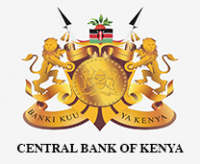Our Mission
Pursuant to the CBK Act, the Central Bank promotes financial stability through regulation, supervision and licensing of financial institutions under its mandate. The Bank also provides oversight of payment, clearing and settlement systems. All these efforts are geared towards fostering liquidity, solvency and proper functioning of the financial system. The Bank also formulates and implements foreign exchange policy and manages foreign exchange reserves. CBK is the banker for, adviser to, and fiscal agent of the Government.
In discharging its mandate, the Central Bank contributes to the country’s economic development and growth, and promotes the interest of the public. The Bank strives to carry out its statutory mandate effectively and efficiently guided by the principles of integrity and transparency.
Establishment
The Central Bank of Kenya (CBK) was established in 1966 through an Act of Parliament, the Central Bank of Kenya Act (1966). The formation of the Central Bank of Kenya arose from the desire amongst the three East African states, Kenya, Uganda and Tanzania, to have independent monetary and financial policies to drive their economies. This led to the formation of the three Central Banks in the region and the eventual collapse of the East Africa Currency Board (EACB), which had been playing this role in mid 1960s.
The current Kenya Constitution was promulgated in August 2010. Article 231 (1) of the Constitution provided for the establishment of the Central Bank of Kenya. Sub-section (2) of Article 231 of the Constitution provides for the role of the CBK thus: formulating monetary policy, promoting price stability, issuing currency and performing other functions conferred on it by an Act of Parliament.
The Constitution further provides, under Article 231 (3), that the CBK shall not be under the direction or control of any person or authority in the exercise of its powers or in the performance of its functions. The CBK is, in this case, granted autonomy by the Constitution.
Mandate and Objectives
The mandate and objects of the Central Bank of Kenya are provided for under Sections 4 and 4A of the Central Bank of Kenya (CBK) Act, which set out the Bank’s objects as follows:
i. To formulate and implement Monetary Policy directed to achieving and maintaining stability in the general level of prices.
ii. To foster the liquidity, solvency and proper functioning of a stable market-based financial system.
iii. To support the economic policy of the Government including its objectives for growth and employment.
Without prejudice to the generality of the above, other objects of the Bank are:
i. To formulate and implement foreign exchange policy.
ii. To hold and manage foreign exchange reserves.
iii. To license and supervise authorized dealers.
iv. To formulate and implement such policies as best promote the establishment, regulation and supervision of efficient and effective payment, clearing and settlement systems.
v. To act as banker and adviser to, and as fiscal agent of the Government.
vi. To issue currency notes and coins.
The Central Bank’s mandate is discharged through six core functions:
- Monetary Policy The Central Bank collects and analyses economic and financial data and undertakes research in micro- and macro-economic activities to inform the formulation of monetary policy geared towards achieving and maintaining stability in the general level of prices.
- Financial Markets To implement monetary policy decisions, the Central Bank employs financial tools at its disposal to foster liquidity in the financial market and manage growth of credit in the economy. The Bank manages the country’s foreign exchange reserves and intervenes to mitigate unforeseen disruptions in order to ensure stability in the foreign exchange market. Further, the Bank discharges its agency role to the National Treasury as it manages the Government’s domestic borrowing.
- Bank Supervision The Central Bank provides legal and regulatory framework and issues prudential guidelines to govern the operations of financial institutions under its mandate. It also licenses and undertakes surveillance of the financial institutions to ensure compliance with laws and regulations.
- Payment and Settlement Systems Safe and efficient payment and settlement systems is a key component of an effective and efficient financial sector. The Bank formulates and implements such policies as best promote the establishment, regulation and supervision of efficient and effective payment, clearing and settlement systems that promotes social and economic activities.
- Banking Services The Central Bank provides banking services to government ministries, departments and agencies, semi-autonomous government institutions and county governments.
- Currency Services The Central Bank is responsible for the design, production and distribution of the Kenya currency. The Bank ensures that there is adequate supply of clean currency to support social-economic activities.


